Easter Celebrations are going on world-wide this weekend. Are they Biblical?
Editorial | AdventMessenger.com


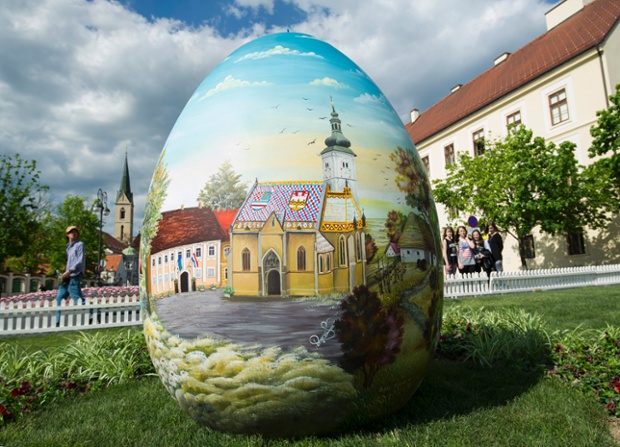

Here a "devotee" atones for his own sins outside a chapel in Angeles, Philippines. The Bible says that Jesus atoned for our sins. Jesus is our passover (1 Cor. 5:7). Why do people engage in self flagellation? Photograph: Erik De Castro/Reuters
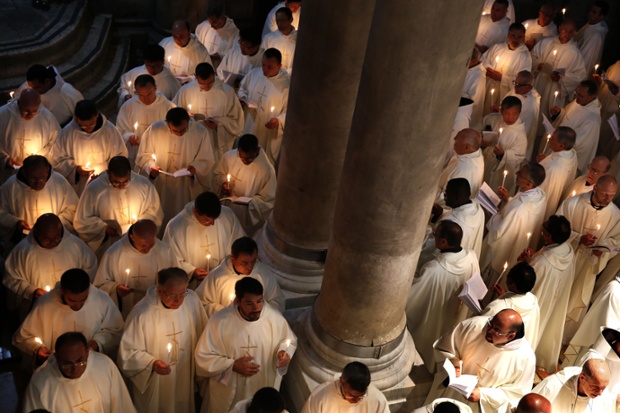
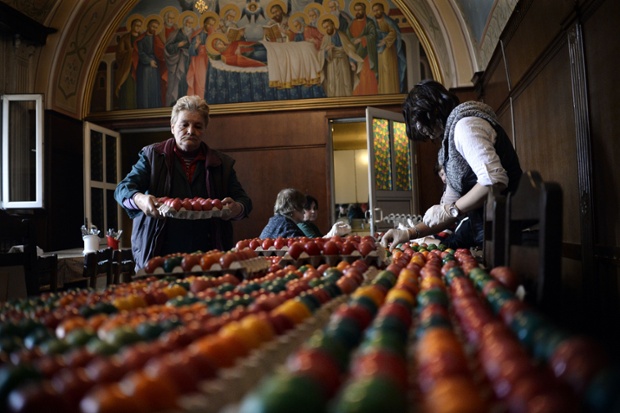
Jesus commemorated the feast of passover with His apostles. They drank the wine (juice) and ate unleavened bread. They never pained any "Easter" eggs. Volunteers paint Easter eggs in the Bachkovo monastery, Bulgaria. According to the Orthodox tradition, Holy Thursday is the day to dye Easter eggs. Photograph: Nikolay Doychinov/AFP/Getty Images
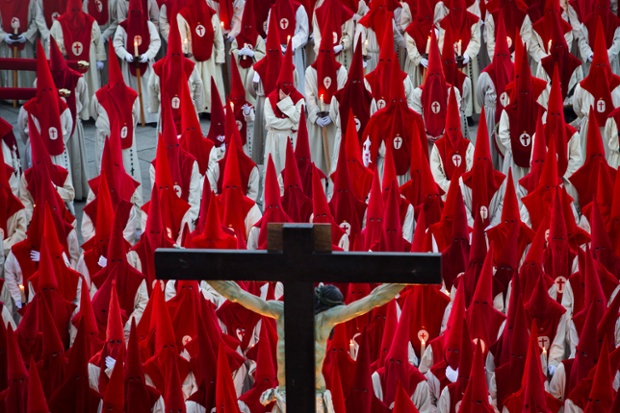
Passover, according to the Bible (Num. 28:16), is celebrated on the 14th day of the first month of the Jewish calendar. That day can fall on any day of the week. Every year it is different. Yet that is the Biblical mandate. There is no such "FIXED" day (Sunday) to celebrate "Easter" (passover). Penitents take part in the Procesión del Silencio during Holy Week in Zamora, Spain. Photograph: Andres Kudacki/AP
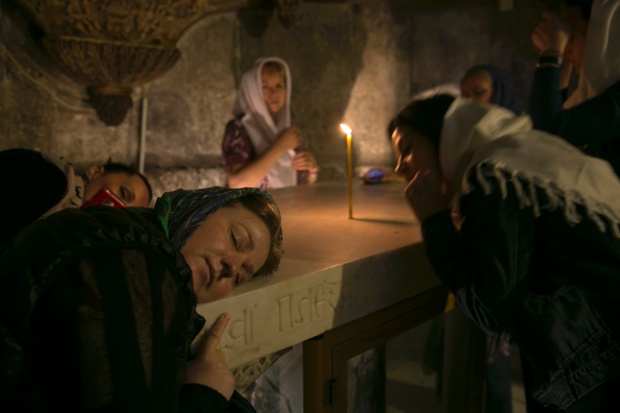
Easter, being that it is not found in the Bible, is celebrated on the first Sunday after the full moon during the spring equinox. There is no scriptural mandate for selecting this "FIXED" day year after year. Christian worshippers pray inside the church of the Holy Sepulchre in Jerusalem’s Old City. Photograph: Baz Ratner/Reuters
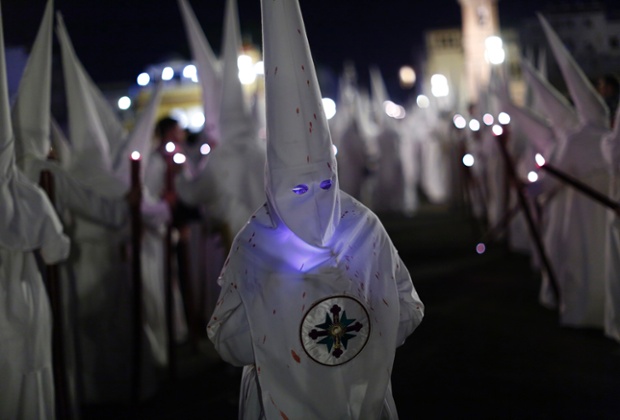
Worshipers perform tedious and painful acts hoping to show their piety. Yet the Bible tells us (Rom. 6:3-5) that the way we can commemorate the passion and crucifixion of Christ is through dying to this world, leaving our old life behind, and living a new life of purity. A penitent from the San Gonzalo brotherhood holds a mobile phone under his hood as he takes part in a holy week procession in Seville, Spain. Photograph: Marcelo del Pozo/Reuters
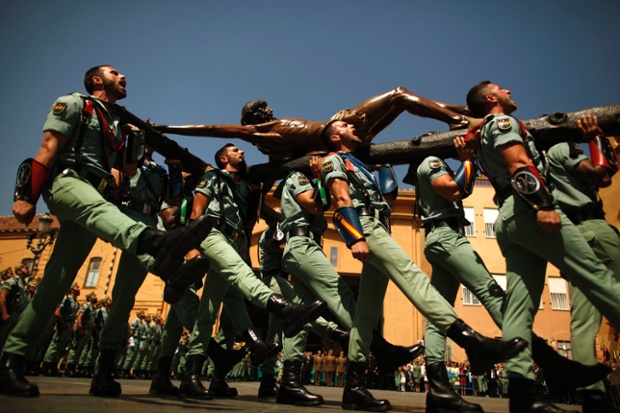
The way to commemorate the passion of Christ is by receiving His righteousness, overcoming the world, and following Him in purity. Too often these "other" celebrations are followed by drinking and revelry. Spanish legionnaires sing as they carry a statue of the Christ of Mena outside a church in Málaga, Spain. Photograph: Jon Nazca/Reuters

Christ was the passover Lamb who suffered and died for us. We are accept this gift by faith and follow Him in living a life that is pleasing to God. A hooded penitent flagellates himself as part of Maundy Thursday rituals to atone for sins in Mandaluyong, Philippines. The ritual is frowned upon by church leaders in this predominantly Roman Catholic country. Photograph: Aaron Favila/AP
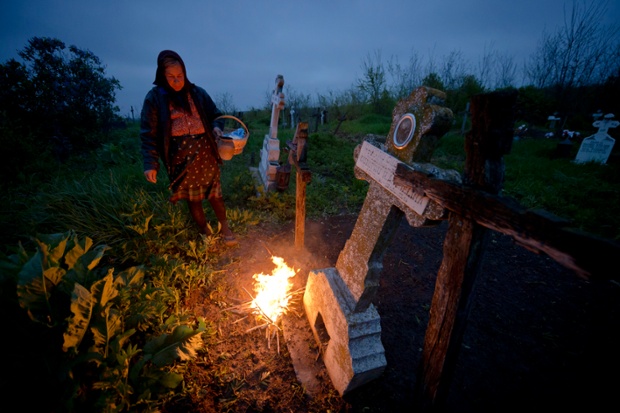
Offering gifts to the dead has nothing to do with the Biblical narrative of Passover. A woman stands by a fire she lit near a grave in Copaciu, Romania. Romanians visit the graves of their loved ones, light fires and share food with community members in memory of the departed on Maundy Thursday as part of holy week traditions. Photograph: Andreea Alexandru/AP

Are we following the Biblical model? Do we understand the spiritual significance of Passover? Or are we following the traditions of men that are sometimes deep-rooted in paganism? Catholics light candles at the tombs of their ancestors during holy week celebrations, known as Semana Santa in Larantuka, Indonesia. Photograph: Ulet Ifansasti/Getty Images
Picture Source
Labels: Editorial, Modern Spiritualism, Protestant Churches, Roman Catholic Church

<< Home